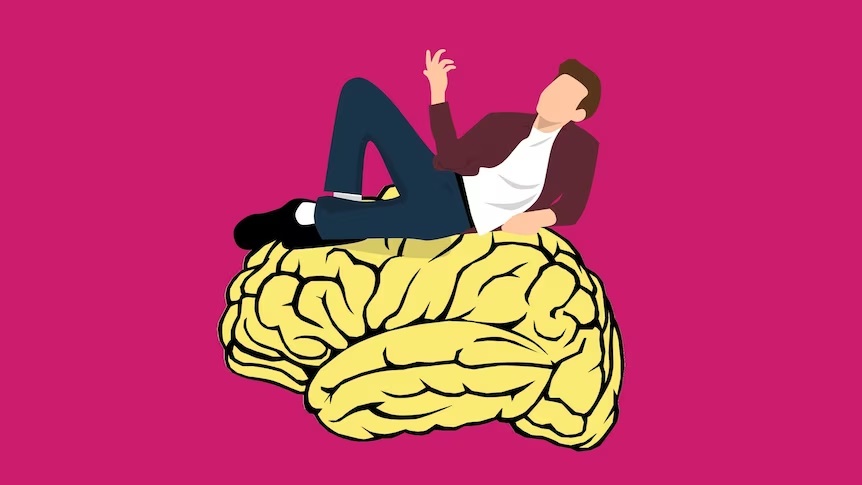
The door of Ch’an is entered by Wu. When we meditate on Wu we ask “What is Wu?” On entering Wu, we experience emptiness; we are not aware of existence, either ours or the world’s.
E-MAIL: admin@relaxmid.com
Life has become a race: a race to work, a race to get to the next subscription, a race to get your children to their extracurricular activities, a race to shower and get to the gym or the gym and miss the finish line. However, the rising popularity of mindfulness practices has shed light on an effective way to combat stress and promote relaxation. Backed by science, mindfulness is a spiritual practice and a proven method to enhance brain health and improve overall well-being.
We will delve into the fascinating science of how mindfulness transforms the brain, reduces stress, and contributes to a healthier, more balanced life.
At its core, mindfulness is fully present in the moment, observing your thoughts and feelings without judgment. It’s often achieved through mindfulness meditation, breathing exercises, and body scanning.
Mindfulness isn’t just about calming the mind; it’s about retraining the brain to function more effectively.

Modern neuroscience has revealed that mindfulness can physically change the structure and function of the brain. This process, known as neuroplasticity, allows the brain to adapt and reorganize itself in response to new experiences and practices.
Decision making, focus and self control are all under the prefrontal cortex. Mindfulness strengthens this area, improving emotional regulation and concentration.
The amygdala is the part of the brain also known as the brain’s ‘ stress center’.’ Regular mindfulness practice reduces the activity and size of the amygdala, helping to lower stress levels.
Associated with memory and learning, the hippocampus benefits from mindfulness through increased gray matter density, enhancing cognitive functions.
It’s active during mind-wandering, or active thinking on one’s own behalf. Mindfulness reduces activity in the DMN, promoting focus and reducing anxiety.
All these health issues result from chronic stress. Mindfulness offers a natural and effective way to counteract stress.
Activating the Relaxation Response: Mindfulness reduces cortisol levels (the stress hormone) and activates the parasympathetic nervous system, inducing a state of calm.
Interrupting the Stress Cycle: By encouraging present-moment awareness, mindfulness helps individuals break free from the cycle of negative thoughts that fuel stress.
Studies show that eight weeks of mindfulness-based stress reduction (MBSR) can significantly decrease stress levels while improving emotional resilience.
Mindfulness trains the brain to stay present, enhancing the ability to concentrate and filter out distractions.
Mindfulness promotes a better understanding of one’s emotions, reducing reactivity and promoting healthier responses to challenges.
By increasing gray matter in the hippocampus, mindfulness improves both short-term and long-term memory.
Mindfulness fosters introspection, helping individuals understand their thoughts and behaviors more deeply.
Regular mindfulness practice not only enhances current mental well-being but also protects against age-related cognitive decline.
Studies suggest that mindfulness may slow the progression of diseases like Alzheimer’s and dementia by preserving brain volume and supporting neural connectivity.
Mindfulness builds a “mental reserve,” helping individuals cope better with life’s challenges as they age.
Pay attention to your breath as you breathe in and out. If your mind wanders, and if it does not, gently bring your attention back to your breathing.
Lay down and imagine you’re scanning your body from top to bottom, noticing any sensations, but without judgment.
Have something to choose an object (fall, candle flame, flower..) and look at it as close as you can, thinking in your imagination about their colors, shapes and equivalents.
And some minutes spent thinking about things you’re grateful for will always have a positive effect on your mindset.

You don’t need hours of meditation to experience the benefits of mindfulness. Here are simple ways to integrate mindfulness into your routine:
As research on mindfulness grows, its applications in mental health treatment are expanding. Mindfulness is now widely used in therapy for conditions like PTSD, ADHD, and chronic pain.
Mindfulness-Based Cognitive Therapy (MBCT): Combines mindfulness with cognitive behavioral techniques to treat depression and anxiety.
Mindfulness-Based Stress Reduction (MBSR): An organized program for lessening the stress and boosting overall well being.
Mindfulness is more than just a relaxation technique; it’s a transformative practice that rewires the brain for resilience, focus, and emotional balance. By understanding the science behind mindfulness and incorporating it into daily life, you can unlock its full potential for immediate stress relief and long-term brain health.
Whether through mindful breathing, meditation, or simple observation exercises, mindfulness offers a robust, science-backed approach to cultivating relaxation and mental well-being in a chaotic world.
